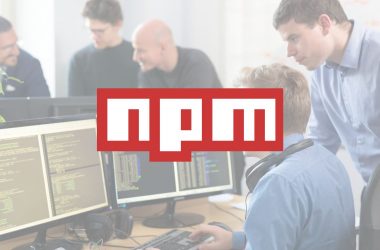Watson, a supercomputer by IBM, shot to fame in 2011 as the ‘brain’ that beat two of the best contestants of Jeopardy! to win a million dollars. This system that combines artificial intelligence (AI) and sophisticated analytical software to answer questions was widely deployed in many industries. The supercomputer was developed in IBM’s DeepQA project and was named after IBM’s founder Thomas J. Watson. Continue reading this article to get an in-depth understanding of the IBM Watson future.
“You can be discouraged by failure, or you can learn from it. So go ahead and make mistakes, make all you can. Because, remember that’s where you’ll find success – on the far side of failure.”
Thomas J. Watson
Under the hood, Watson artificial intelligence has a processing rate of 80 teraflops per second. It uses 90 servers that store more than 200 million pages of information which can be processed with 6 million logic rules to replicate or even surpass a human brain is in the ability to answer questions. The supercomputer has 2,880 processor cores, 15 terabytes of RAM, and handles 500 GB of preprocessed information. Running on SUSE Linux Enterprise Server 11 uses the Apache Unstructured Information Management Architecture (UIMA) framework needed for the analysis of unstructured data and its DeepQA software that incorporates machine learning and natural language processing (NLP) for information retrieval.
ADVERTISEMENT
How IBM Watson helps businesses deliver more innovative solutions
IBM Watson has come a long way from the simple answering machine it was a decade ago. Its tremendous analytical and cognitive capability can process vast reserves of unstructured data and extract meaningful relations to return answers to questions across the wide range of industries it currently supports. What sets Watson apart is its capability in business problem solving using enormous sets of unstructured data while most analytic software can only handle structured data. For example, being a cognitive system, Watson is probabilistic in its approach- it can make sense of the complexities and unpredictability of unstructured information. It can “read” text messages, “see” images, and “hear” speech to interpret the data and offer explanations to queries. With the ability to analyze and interpret existing data the Watson finds application in fields such as:
Healthcare
Healthcare was one of the first industries to which Watson was applied. It saw its first commercial application with the Memorial Sloan Kettering Cancer Center in 2013 as a system for a treatment recommendation for lung cancer patients. While it had some unsuccessful runs at the beginning, such as with the MD Anderson Cancer Center Huston project in 2013 as a support system for treatment, it has been improved and applied successfully with other health care providers such as Westmed Medical Group, Cleveland Clinic, and Maine Center for Cancer Medicine. Physicians also apply Watson for diagnoses using patient input data and natural-language processing. Vision recognition by Watson is one substantial area that helps doctors read medical scans such as MRIs and X-rays.
Finance
Banks leverage Watson in the finance sector towards customer queries and business recommendations by analyzing the generated data. The ANZ Global Wealth in Australia, for example, uses an NLP SaaS offering called the Watson Engagement Advisor Tool to observe and field customer queries. It is also capable of processing financial data to glean insights and help with investment recommendations.
ADVERTISEMENT
Analytics
The IBM Watson Analytics is a SaaS service that enables companies to utilize Watson’s cognitive capabilities for exploring, visualizing, and presenting data. It analyzes the data uploaded by users to build comparisons, recognize correlations between variables and get answers to complicated questions based on the input data.
Supporting AI Applications
The IBM cloud has a range of application program interfaces (APIs) that allows users to build their own ai applications supported by Watson’s core at the back end. To cater to all users working on automation, the APIs support all the popular development frameworks such as Python, Java, and others.
Conclusion
The cognitive computing capability offered by IBM Watson will continue to disrupt automation across different industries by making processes cheaper, more innovative, and more efficient. While the big industry players can have their internal systems, smaller companies can use Watson’s solutions on cloud SaaS-based models.
ADVERTISEMENT
References:
- https://searchenterpriseai.techtarget.com/definition/IBM-Watson-supercomputer
- http://publicservicesalliance.org/wp-content/uploads/2015/10/Computing_Cognition_WhitePaper.pdf
- https://www.zdnet.com/article/ibm-watson-what-are-companies-using-it-for/
- https://www.analyticsinsight.net/ibm-watson-applications-competitors-and-success-stories/
Procommun Suggestions
procommun.com








